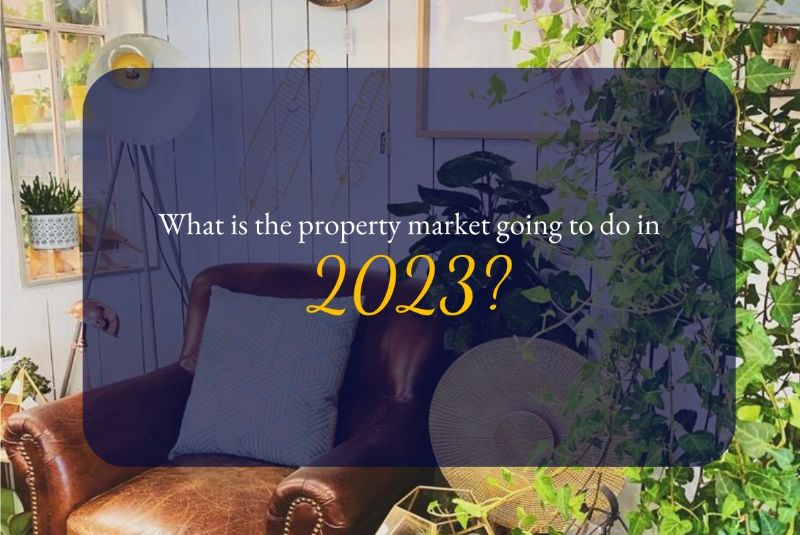
The experts are starting to weigh in, and compared to historical results, this next real estate cycle is leaving many questions on the table.
The Bank of England increased the base rate from 3% to 3.5% in December, the 9th increase in a row and the highest since late 2008.
Approximately one-third of properties have a mortgage, and 4,000,000 will see an increase of about £3,000 on their mortgage this year.
1,600,000 of these are on a tracker mortgage, and with the latest increase, it will see a £49 rise per month and is £333 a month higher than this time last year.
Variable rates will go up by £31 per month and are £210 higher than in January last year.
A 3% rise from the historically low base rate in February 2020 looks like an extra £160 per month per £100,000 borrowed, and this 0.5% rise looks like an additional £26 per month.
Inflation is 10.7% and is currently well below the 2% target.
An overdraft is currently costing 20.73% and 19.31% for credit cards.
Indeed we are going through a difficult economic period, but the above is all you will see from the media.
Below is the other side of the story to give a balanced view.
Overall, we can’t escape the fact that times are tough. There is a cost-of-living crisis, energy costs are rising, and people are paying more for their mortgages.
However, just under 50% of buyers move with cash or a deposit of 50% or more, and many homeowners have had an equity buffer build-up in recent years.
Going from a historically low base rate to 3.5% has approximately reduced the budget of a buyer by 15% if their mortgage payments stay the same, so buyers either need to increase their monthly payment or reduce the amount they are willing to borrow to keep their mortgage payments the same.
Our final point is - does the average person know how much interest they pay on their car loan?
Probably not, but it's extremely likely they know the monthly amount in pounds and pence, so talk to them about this when it comes to house prices.
Last but not least, a question -
Would you rather buy a property in a growing market, with lots of competition from other buyers at a lower interest rate?
OR
Would you rather buy a property in a declining market, with less competition from other buyers, at a higher interest rate?
I hope this post has brought a balanced view of what is expected in 2023.
The Bank of England increased the base rate from 3% to 3.5% in December, the 9th increase in a row and the highest since late 2008.
Approximately one-third of properties have a mortgage, and 4,000,000 will see an increase of about £3,000 on their mortgage this year.
1,600,000 of these are on a tracker mortgage, and with the latest increase, it will see a £49 rise per month and is £333 a month higher than this time last year.
Variable rates will go up by £31 per month and are £210 higher than in January last year.
A 3% rise from the historically low base rate in February 2020 looks like an extra £160 per month per £100,000 borrowed, and this 0.5% rise looks like an additional £26 per month.
Inflation is 10.7% and is currently well below the 2% target.
An overdraft is currently costing 20.73% and 19.31% for credit cards.
Indeed we are going through a difficult economic period, but the above is all you will see from the media.
Below is the other side of the story to give a balanced view.
- The Bank of England has been around since 1694, and interest rates dropped below 2% in 2009 for the first time in their history.
- During this time, the average base rate has been 5.92% and 9% since January 1975.
- It is predicted to peak at 4.5% this year, not the originally forecasted 6%, and is still considerably lower than the long-time average.
- Two of the nine members of the Monetary Policy Committee voted to keep the base rate the same, and rises have been seen worldwide and not just isolated to the UK.
- The cheapest 2-year fixed rate is now 4.6% compared to 5.62% in October and is now 4.5% for five or ten-year fixed rates compared to 5.34% and 5.09% compared to October.
- After the mini-budget, interest rates have come back down, and many lenders have already factored in the base rate rises.
- The good news is that the Bank of England will not meet this month, so we should have a break from the negativity in the media. However, the base rate is predicted to rise again on the 2nd of February when the Committee meet again.
- Inflation has dropped from 11.1% to 10.7%.
- Remember, base rate rises are there to control inflation. We have had phenomenal equity growth (£48 per day on average between Feb 20 & April 22), buyers have been stress-tested for rate rises for several years now, and we still have record-low unemployment levels.
Overall, we can’t escape the fact that times are tough. There is a cost-of-living crisis, energy costs are rising, and people are paying more for their mortgages.
However, just under 50% of buyers move with cash or a deposit of 50% or more, and many homeowners have had an equity buffer build-up in recent years.
Going from a historically low base rate to 3.5% has approximately reduced the budget of a buyer by 15% if their mortgage payments stay the same, so buyers either need to increase their monthly payment or reduce the amount they are willing to borrow to keep their mortgage payments the same.
Our final point is - does the average person know how much interest they pay on their car loan?
Probably not, but it's extremely likely they know the monthly amount in pounds and pence, so talk to them about this when it comes to house prices.
Last but not least, a question -
Would you rather buy a property in a growing market, with lots of competition from other buyers at a lower interest rate?
OR
Would you rather buy a property in a declining market, with less competition from other buyers, at a higher interest rate?
I hope this post has brought a balanced view of what is expected in 2023.


